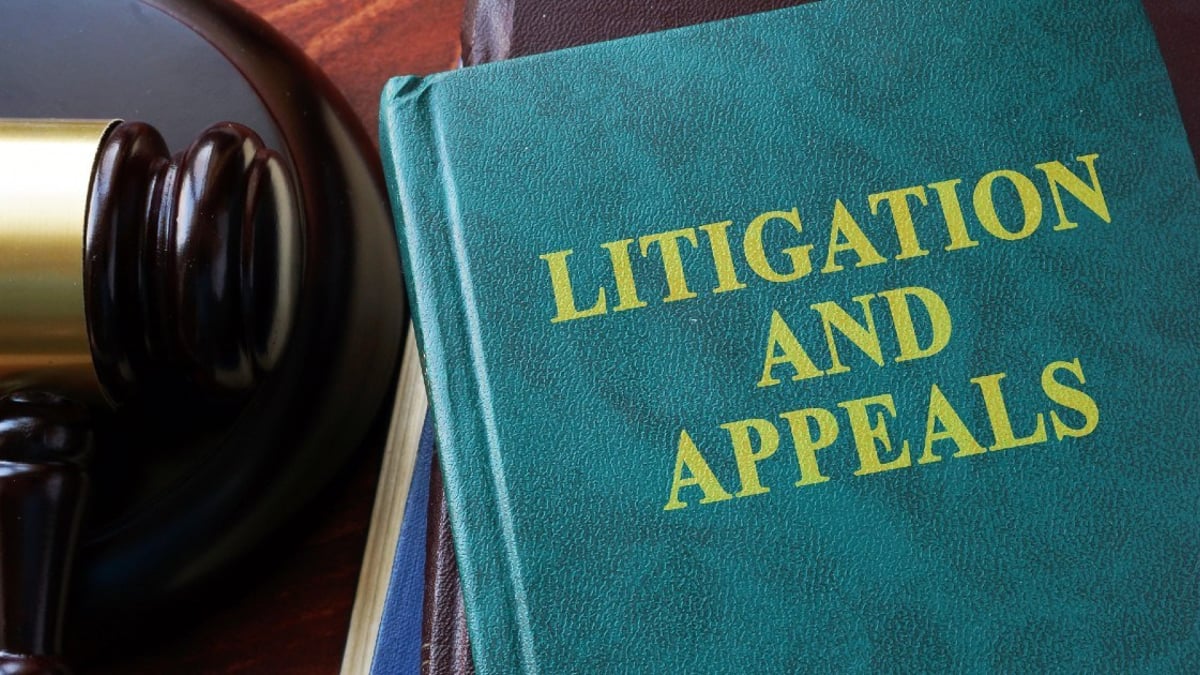How PASPA's Repeal Went From a Dream to a Reality

How PASPA's Repeal Went From a Dream to a Reality
It’s been nearly five years since the Supreme Court overturned the Professional and Amateur Sports Protection Act (PASPA), opening the door to an explosion in the availability of legal sports betting sites. Five years later, the high court finding PASPA unconstitutional feels like it was inevitable.
Still, until the Supreme Court agreed to hear New Jersey’s case against the 1992 law, few believed a PASPA repeal would happen.
The wheels began turning on the PASPA repeal in 2007, when a group known as iMEGA (Interactive Media, Entertainment and Gaming Association) legally challenged another federal gambling law, the Unlawful Internet Gaming Enforcement Act (UIGEA), which was passed in late 2006.
Whie iMEGA’s efforts to repeal the act didn’t produce the desired results, the ruling against it led to an epiphany. The court ruled (correctly) that the act didn’t make online gambling illegal; it made the processing of payments to illegal online gambling sites illegal. The determination of legal and illegal was up to the states.
Joe Brennan, one of the original members of iMEGA, explained how its interest shifted to sports betting in a 2021 interview with Gambling.com.
“An attorney working with us asked me, 'What about sports betting? Do you have any interest in sports betting?' I said, 'Well, yeah, of course I do; of course we do.' And he said, 'Well, there's a state senator, Ray Lesniak from New Jersey, and he has been trying to get traction for an effort to legalize sports betting in New Jersey for a couple of years and he just can't seem to get any traction. Would you have an interest in meeting him?' That was December of 2008. So, I went and I met with the senator — and talk about the beginning of a beautiful friendship! The senator right away said, 'All right, let's file a lawsuit.' It was a cast of thousands, but iMEGA was the lead plaintiff on the original suit. But the senator got the New Jersey state Senate on board. And then you had the state's thoroughbred industry with Dennis Drazin (CEO of Monmouth Park Racetrack) and the standardbred horsemen's association.”
The lawsuit began a long process, eventually leading to the Supreme Court PASPA decision. However, the New Jersey case against PASPA was running on fumes for most of its existence.
2009 Lawsuit: The First Salvo
In 2009 Lesniak, iMEGA and a coalition of horsemen’s groups sued in a bid to have PASPA declared unconstitutional.
A federal district court tossed the suit, saying the plaintiffs lacked standing because neither the plaintiffs nor New Jersey offered sports betting.
New Jersey Votes to Legalize Sports Betting
Lesniak and company devised a new plan of action, legalizing sports betting in New Jersey through a 2011 voter referendum.
The referendum passed by a nearly 2-1 margin, and in early 2012, New Jersey lawmakers passed legislation to legalize sports betting.
Gambling.com is doing a multi-part series on the fifth anniversary of the repeal of PASPA, which opened the door for each state to consider online gaming. Today, How the Repeal of PASPA Came to Be.
- Tuesday: NCPG Head Keith Whyte Discusses 5 Years Of Responsible Gambling In A Post-PASPA World
- Tuesday: President of AGA Gives His Thoughts on Five Years after PASPA Repeal
- Wednesday: States Lose the Fear of Gambling
- Friday: Las Vegas' Demise Was Greatly Exaggerated
- Sunday: 10 Years of Legal Online Gambling and Five Years of Legal Sports Betting
- Sunday: What’s Next For Gaming in the U.S.?
Christie I: The Leagues Step In
New Jersey’s efforts ran into a roadblock, with professional sports leagues suing the state to stop the law from going into effect. New Jersey countered that the PASPA was unconstitutional and violated the Constitution's commerce clause and anti-commandeering and equal sovereignty principles.
The court found the leagues had standing, and this time, New Jersey had standing, as it passed a law to legalize sports betting. Unfortunately for New Jersey, the district court ruled in favor of the leagues.
That ruling was appealed and sent to the U.S. Court of Appeals for the Third Circuit.
Third Circuit Offers a Roadmap
The Third Circuit sided with the District Court ruling, but the 2-1 decision offered New Jersey a glimmer of hope and a roadmap to reframe its argument. The 2-1 loss was seen as a win by sports betting supporters.
In a statement, Lesniak said: “For the first time, a judge has ruled in our favor. That gives us hope that others ... will allow New Jersey to enjoy the economic benefits of sports betting that are now reserved exclusively for Nevada.”
In his dissent, Judge Thomas Vanaskie agreed with the majority decision on the commerce clause and the equal sovereignty principle but disagreed regarding the anti-commandeering principle.
“PASPA attempts to implement federal policy by telling the states that they may not regulate an otherwise unregulated activity,” Vanaskie wrote in his dissent. “The Constitution affords Congress no such power.”
But more important the majority opinion included the following: "We do not read PASPA to prohibit New Jersey from repealing its ban on sports wagering.” That line would be the foundation for the state’s next attempt to legalize sports betting.
On appeal, the Supreme Court declined the case.
A New Law
Using the Third Circuit’s ruling as a guide, Lesniak crafted a bill that, rather than legalize sports betting at casinos and racetracks, removed existing prohibitions on sports betting in the Garden State. The catch was that it prohibited sports wagering at all locations and businesses except casinos and racetracks.
Upon passage, the sports leagues sued again to stop the law’s enactment.
Christie II: Reframing the Argument
The new court battle became known as Christie II, and while approaching the issue from a new angle, the courts (District Court and the Third Circuit) ruled the same as in Christie I. But there was a twist, as Judge Fuentes, who wrote the majority opinion in Christie I, dissented.
New Jersey was now 0-5 in court cases but still had a lot of fight left. The Third Circuit Court of Appeals was split again, with Judge Fuentes (who wrote the Christie I majority opinion) shifting to the New Jersey side. That led to New Jersey requesting an en banc ruling – in which the entire roster of circuit judges hears the case.
The Third Circuit en banc ruling was 9-3 in favor of the leagues, putting New Jersey’s record at 0-6 and its prospects bleak, considering the Supreme Court declined to hear the Christie I case.
Once again, Judge Fuentes sided with New Jersey and questioned the majority opinion that seemingly said only a full repeal would be permissible under PASPA:
“Suppose the State did exactly what the majority suggests it could have done: repeal completely its sports betting prohibitions. In that circumstance, sports betting could occur anywhere in the State and there would be no restrictions as to age, location, or whether a bettor could wager on games involving local teams. Would the State violate PASPA if it later enacted limited restrictions regarding age requirements and places where wagering could occur? Surely no conceivable reading of PASPA would preclude a state from restricting sports wagering in this scenario. Yet the 2014 Repeal comes to the same result.”
SCOTUS Takes the Case
Against all odds, the Supreme Court decided to hear the case, which was a massive victory for New Jersey. With every court ruling against New Jersey, the only reason for the high court to take the case is because of a disagreement with the lower courts.
Everything changed when the high court took the case. ESPN’s David Purdum listed the odds of New Jersey prevailing at -150. Purdum had New Jersey at +1,100 when the Supreme Court declined the Christie I case.
Oral Arguments Favor New Jersey
Following oral arguments in December 2017, the momentum continued to shift toward New Jersey. Purdum’s new odds were New Jersey -250.
Legal experts will tell you that reading into judges’ questions is folly, but the lines of questioning during oral arguments universally favored New Jersey.
The Decision
On May 14, 2018, the Supreme Court unanimously sided with New Jersey (there were some minor disagreements around the edges) The PASPA sports betting prohibition was officially repealed, and sports betting was left up to each state.
New Jersey’s record in court was 1-6, but the case it won was the only one that really mattered. Of course, had the Supreme Court declined the case for a second time, things would be very different.
Be first to get our exclusive sports offers!
Join today to stay up to date on your states gambling news and offers.











